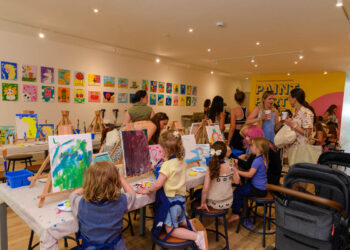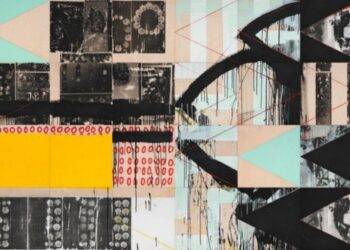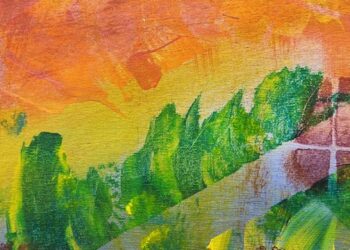Who was the first black NBA player? It’s unfortunately a question that many can’t answer. However, filmmakers Coodie and Chike are hoping to make Earl Lloyd’s legacy common knowledge.
The West Virginia State College star was drafted by the Washington Capitols, and on October 31, 1950, he became the first African American to play in an NBA game.
The First to Do It, presented by the National Basketball Players Association (NBPA), chronicles the life and times of Lloyd, from his childhood in deeply segregated Alexandria, Virginia, to seeing the first black President of the United States.
The documentary, which includes interviews with current NBA All Stars, NBA legends, coaches, family members and historians, has been selected to screen during the 25th annual Hamptons International Film Festival and we caught up with The First to Do It‘s directors to learn more about the iconic, humble man:
The film includes interviews with many who crossed paths with Earl over the years, from classmates to teammates to family, as well as NBA players, historians and journalists. How did you decide who to include?
Chike: It was important to find as many people that were around that could talk about certain moments because they lived through them. We wanted to really get his classmates that he went to high school with. When you start hearing from those types of people, it personalizes the story more. They paint a picture of what it felt to go through those time periods. We felt certain things only can come from the mouths of someone that had experienced it. We didn’t want to have Carmelo talk about what he thought about something when we had someone who could speak directly to something. We knew we needed players like Carmelo and Kawhi and Chris Paul that were relevant to today’s youth and culture because otherwise those kids might not want to hear it – it’s like them talking to their grandparents. It’s like dangling a carrot because once we get these kids in, then they’ll realize how interesting the story is. What was real important was to have Sean Kirst because he had written the autobiography of Moonfixer on Earl Lloyd – it’s a wealth of knowledge. Also, as a writer, the way he says things are so poetic. He interacted with so many people, there’s more people that could actually be in there but we had to draw a line.
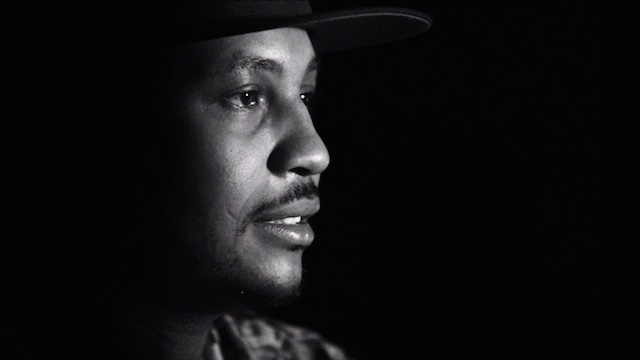 |
|
The film includes interview with NBA stars like Carmelo Anthony. (Photo: Abramorama, Constant Beta, Creative Control) |
You start the film interviewing two children asking them who their favorite NBA player was and follow that up with who was the first black person to play in the NBA and include more footage of the youth later on. Why did you feel it was important to include the perspective of youth?
Coodie: I wanted to hear what they had to say. I knew they wouldn’t know, but figured since they were from West Virginia they might have heard. They didn’t know and one of the kids actually said Michael Jordan. We asked some of the NBA players like Tony Parker, which we didn’t put in the film, but Tony didn’t know and certain players didn’t know. It’s amazing that we know about Jackie Robinson, but these players that are making a career and living off of the thing that Earl Lloyd, “Sweetwater” Clifton and Chuck Cooper did, it seemed like they would understand that history, but it really hasn’t been talked about.
Chike: I think it was important in the messages that we were covering, even though Coodie knew that they didn’t know, in the same way that we didn’t know. It goes to show you that the players that we all look up to aren’t talking about him enough, because if they were, than just as much as the young kids herald the players of today, just like I heralded my players when I was their age, if those players were talking about him, then I would have known about Earl. It’s a testament to say there’s not enough conversation around this player that paved the way for other players to have so many opportunities. Most of the players in the league are black, we know that, but at one point there wasn’t even an option for that to happen. I feel like it becomes a responsibility for the players to keep this man’s name in their mouth when they’re speaking about the league because it’s a certain homage, respect for what he went through for them to have these opportunities.
Prior to filming, were you aware that there was a ban to draft black players because team owners were afraid to tap talent from Abe Saperstein’s Harlem Globetrotters?
Chike: I didn’t know at all. We learned so much during the process of this. Like I said before, I didn’t even know he [Earl Lloyd] was the first to play. My knowledge of basketball history, even though I played growing up, I never studied basketball from an origin perspective. I didn’t even know the Globetrotters opened up before the NBA or they were the only opportunity for a black player. I didn’t realize that when the NBA started, it would be stealing its players from the Globetrotters. After I learned that I posed the question: what if the Globetrotters never let their players go? Would that league had grown? I didn’t realize that most of the audience was coming to see the Globetrotters and they were the draw. It kind of gives you that thought now, with all the racial tension now going on in sports, what would happen because people come to see the players, they don’t come to see the owners. What if the players had decided to start their own league and they became the owners of their own league, what would happen? It’s something I’m still curious to know.
Coodie: It’s funny how the Globetrotters are still big and still selling out arenas and are traveling the world. It’s amazing that they were the opening act and brought people to the arenas in the 50s/60s era.
The film broaches upon racial tensions throughout history. How did you find a balance between including these significant moments and Earl’s life?
Chike: We didn’t want to tell a basketball story. We used the tensions to tell the story of American history and the American history that you might not talk about that much in school and it’s from a different perspective. That was always an intention of ours from the beginning. We asked what are the major moments in history that he actually navigated through while going through this journey in basketball – obviously the Civil Rights, the Detroit Riots, what happened in Syracuse. We let the places that he went on his journey for basketball unravel the moments that we wanted to unravel within history.
Did you ever ask Earl what he thinks of his legacy?
Coodie: No, we never got a chance to interview Mr. Lloyd. The day before we were going to interview him, because we did this independently so we were still raising funds, we decided to do a fall interview on the day he broke the color barrier which is October 31st. The day before, Mr. Lloyd had a stroke. That’s when we went down to the hospital and started filming.
Chike: We did get a chance meet with him and speak with him and feel the greatness of his presence, which was amazing. There was one point in time where I was watching this game and to have Earl Lloyd come back to West Virginia – I don’t think he had been back since he left – to watch his alma matter, you’re capturing this special moment for himself, and they were also unveiling his statue right next to Bill Russell. At one point I was in between the two and it didn’t feel right to be there. It felt like this was too big of a moment to share with him.
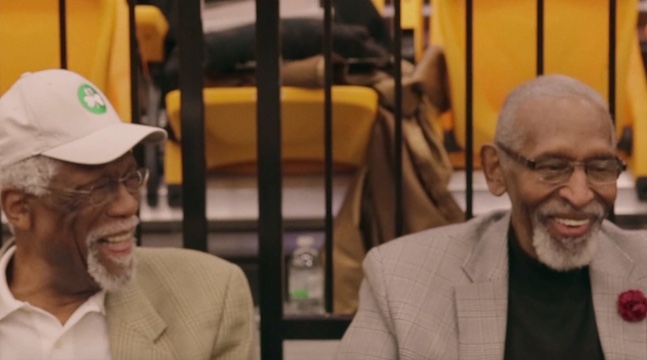 |
|
Lloyd was drafted by the Washington Capitols.
|
Did Earl see any of the film before he passed?
Coodie: No, unfortunately not.
Chike: He was aware of everything that was going down because we were in motion. The energy that he gave us was he was so excited to see it. He’s one of those people that we only got the privilege of seeing him twice, but you felt like you knew him a long time.
What did his family think of the film finally giving him the recognition that he deserves?
Coodie: We haven’t had a full conversation with Charlotte, his wife, but from what we understand, they really, really liked it.
Chike: I think one of the reasons it’s taken so long for a story on him to happen is because he’s such a humble person. He’s the first to tell you it was “Sweetwater” and Chuck – those were the guys. He’s the first to deflect it from him, because those guys were drafted first. It was just the way that the schedule fell is why he was the first to play. When walking into his house, one of the things that stood out to me was his trophies were in the closet next to board games with the vacuum cleaner. He doesn’t seem to put those above the moments that he shares with individuals. He had pictures with him and Biden and President Obama and those were what was out around the house, pictures of his family.
Coodie: It’s funny how people will say Chuck Cooper was the first or “Sweetwater” Clifton was the first because they were drafted. If it wasn’t for Sweetwater” Clifton, I don’t think any blacks would have been drafted into the NBA, but that’s neither here nor there because Sam Bowie was drafted before Michael Jordan, yet people think Michael Jordan is the best player. Earl Lloyd was the first to play on a court, which makes it the first, regardless, with much respect to all of those guys that paved the way.
What do you hope people take away?
Chike: I want people to really ask themselves a couple of different things: how much progress have we made on the issues that we cover? We cover a lot of racial issues – segregation and integration. I want people to really examine the question of was the integration process really handled properly? Are we seeing the effects of not integrating correctly now – because of the racial issues we’re dealing with currently? Is basketball one of the only tickets out of these neighborhoods? Are we saying that’s a good thing or a bad thing? To ask these types of questions coming out of the film is what we want people to be talking about.
Coodie: And who was the first black tennis player? Who was the first black NFL player? All of these people we should know, we don’t know.
Chike: The reason it’s important for us is because we are black and it might have more importance to us to know these answers because when you grow up in school, black history as far as what blacks did what – isn’t covered that much in history books when you’re talking about American history. Sometimes we have to go and carve out some of these moments and share them because not to say we don’t have heroes that aren’t black, but we should also have black heroes as well and white people should be able to have black heroes as well. If we both know each other’s history, that’s a way to form empathy. I think we’re quicker to be empathic because most of our lives we’ve grown up with a knowledge of European history as it applies to American history. Our history starts out in history class as us being slaves and then is covered briefly, but it comes from an inferior angle. And that’s were it starts as opposed to being the first to do something major.
Is there anything you would like to add?
Chike: I’m just excited and I hope that everyone comes out to see it. They’ll realize it’s more than just a basketball story.
The First to Do It will screen at Bay Street Theater (1 Bay Street, Sag Harbor) on Friday, October 6 at 8:30 p.m.
The 25th annual Hamptons International Film Festival will be held Thursday, October 5 through Monday, October 9. Founders Passes and tickets are currently available for purchase.
For more information, visit hamptonsfilmfest.org.


